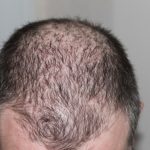Recovery from substance use disorder is a challenging journey that requires a multifaceted approach to achieve lasting sobriety. Among the various strategies employed, exercise has emerged as a powerful tool in aiding recovery. This article explores the significant role that exercise plays in addiction recovery, highlighting its physical, mental, and emotional benefits.
- 1.) Physical Benefits of Exercise in Addiction Recovery
- 2.) Mental Health Benefits of Addiction Recovery Exercise
- 3.) Building a Routine and Structure
- 4.) Enhancing Overall Well-Being and Self-Esteem in Recovery for Substance Use Disorders
- The Comprehensive Benefits of Exercise in Addiction Recovery
1.) Physical Benefits of Exercise in Addiction Recovery
Repairing the Body from Substance Abuse Damage
Regular physical exercise provides numerous physical benefits that are particularly advantageous for individuals in recovery from the effects of alcohol and drug abuse. Firstly, exercise in addiction recovery helps to repair the body and offers a potential treatment for the damage caused by drug and alcohol addiction.
Many substances, including alcohol, opioids, and stimulants, can have detrimental effects on various bodily systems. For example, alcohol abuse can lead to liver damage, opioids can cause respiratory issues, and stimulants can harm cardiovascular health. Engaging in regular physical activity promotes the healing and strengthening of these systems.
Improving Cardiovascular Health
Exercise improves cardiovascular health by strengthening the heart muscle, enhancing blood circulation, and lowering blood pressure. Cardiovascular exercises such as running, cycling, and swimming increase heart rate and improve the efficiency of the cardiovascular system. For individuals recovering from abusing drugs or alcohol, improved cardiovascular health can mean better endurance, reduced fatigue, and a lower risk of heart-related diseases.
Increasing Muscle Strength and Overall Physical Fitness
Regular physical activity, particularly strength training, helps in rebuilding and increasing muscle mass, which can be significantly reduced during periods of drug use. Enhanced muscle strength not only improves physical appearance and combats poor posture, but also increases functional ability, making daily tasks easier and less physically taxing.
Boosting the Immune System
Engaging in physical activity also boosts the immune system, making the body more resilient to illnesses and infections. Substance abuse often weakens the immune system, making individuals more susceptible to infections and diseases. Regular exercise enhances the production and circulation of white blood cells, the body’s primary defense against pathogens, thereby promoting a stronger immune response.
Managing Withdrawal Symptoms and Reducing Cravings
Stimulating Endorphin Production
Exercise can help manage withdrawal symptoms and reduce cravings. Physical activity stimulates the production of endorphins, the body’s natural painkillers, which can alleviate discomfort and provide a sense of well-being. Endorphins interact with receptors in the brain to reduce the perception of pain and trigger a positive feeling in the body, similar to that of morphine and other drugs.
Increasing Dopamine and Serotonin Levels
Exercise also increases the levels of dopamine and serotonin, neurotransmitters associated with pleasure and mood regulation, which are often depleted in individuals with addiction. Dopamine plays a significant role in the brain’s reward system, influencing feelings of pleasure and satisfaction. Regular physical activity helps in the natural production and regulation of dopamine, aiding in the reduction of cravings and withdrawal symptoms.
Improving Sleep Quality
Physical activity has been shown to improve sleep quality, which is often disrupted during the drug use withdrawal process. Regular physical exercise improves sleep patterns by promoting relaxation and reducing anxiety. Enhanced sleep quality can significantly enhance recovery from substance use disorder by allowing the body to heal and repair itself more effectively.
Supporting Weight Management
Exercise supports weight management, which can be a concern for individuals in recovery. Substance use disorder can lead to significant weight fluctuations, either due to the direct effects of the drugs or related lifestyle factors. Regular physical activity helps in maintaining a healthy weight by burning excess calories and building lean muscle mass.
Enhancing Overall Physical Well-Being
Finally, engaging in regular exercise in addiction recovery can enhance overall physical well-being by promoting a healthy lifestyle. It encourages individuals to adopt other healthy habits, such as proper nutrition and hydration, which are crucial for recovery. By integrating physical activity into their daily routine, individuals in recovery can experience increased energy levels, improved physical appearance, and a greater sense of physical well-being.
2.) Mental Health Benefits of Addiction Recovery Exercise
Reducing Symptoms of Anxiety and Depression
Regular exercise is not only beneficial for the body but also for the mind. It has been shown to reduce symptoms of anxiety and depression, which are common co-occurring conditions in individuals with addiction. These mental health issues can be both a cause and a consequence of substance use disorders, creating a vicious cycle that is difficult to break. Engaging in regular physical activity can be an effective way to combat these co-occurring conditions.
Promoting Endorphin Release
Physical activity promotes the release of endorphins, which is great from elevating mood and relieving stress levels. Endorphins are chemicals in the brain that act as natural painkillers and mood elevators. By increasing the production of these chemicals, exercise can help individuals feel happier and more relaxed, which is particularly important during the often stressful and emotionally taxing process of addiction recovery.
Providing a Healthy Outlet for Emotions
Exercise in addiction recovery also provides a healthy outlet for managing emotions and coping with triggers. Many individuals with addiction struggle with emotional regulation and may turn to substances as a way to cope with stress, anger, or sadness. Physical activity can serve as a constructive and healthy alternative, helping individuals to process and release negative emotions in a controlled and positive manner.
Improving Cognitive Function and Memory
Moreover, exercise helps to improve cognitive function and memory. It increases blood flow to the brain, promoting the growth of new neurons and enhancing overall brain health. This is particularly beneficial for individuals in recovery, as substance abuse often impairs cognitive abilities, leading to problems with memory, attention, and decision-making.
Neurogenesis and Brain Plasticity
Regular physical activity has been shown to support neurogenesis, the process by which new neurons are formed in the brain. This is crucial for brain plasticity, which allows the brain to adapt and reorganize itself by forming new neural connections. For those recovering from drug or alcohol addiction, this can mean better cognitive function, improved memory, and enhanced ability to learn new skills and behaviors.
Improving Executive Functioning
Regular exercise also improves executive functioning, which includes skills such as planning, organizing, and managing time effectively. These skills are often impaired in individuals with substance use disorders, making it difficult to maintain daily responsibilities and achieve long-term goals. By enhancing executive functioning, exercise can help individuals in recovery regain control over their lives and improve their overall quality of life.
Reducing Cognitive Decline and Protecting Against Neurodegenerative Diseases
Physical activity can also reduce cognitive decline and protect against neurodegenerative diseases such as Alzheimer’s and Parkinson’s. While these conditions may not be immediate concerns for all individuals in recovery, the long-term cognitive benefits of regular exercise are an important consideration for maintaining overall brain health and preventing future cognitive impairments.
Additional Mental Health Benefits of Exercise
Boosting Self-Esteem and Self-Confidence
Engaging in regular physical activity can also boost self-esteem and confidence. Achieving fitness goals, whether it’s running a certain distance, lifting a specific weight, or mastering a new exercise routine, can provide a sense of accomplishment and improve self-worth. This is particularly important for individuals in recovery who may struggle with feelings of guilt, shame, or low self-esteem as a result of their drug or alcohol addiction.
Enhancing Social Connections
Regular exercise can also enhance social connections, which are crucial for mental health. Participating in group fitness classes, sports teams, or running clubs can provide opportunities to meet new people, build supportive relationships, and create a sense of community. Social support is a key factor in successful addiction recovery, and exercise can be an effective way to foster these important connections and everyday interactions.
Promoting Mindfulness and Stress Reduction
Many forms of exercise, such as yoga and tai chi, incorporate mindfulness and deep breathing techniques that promote relaxation and stress reduction. These practices can help individuals in recovery develop greater awareness of their thoughts and emotions, improve their ability to manage stress, and reduce the likelihood of relapse.
3.) Building a Routine and Structure
The Importance of Routine and Structure
One of the key challenges in addiction recovery is establishing a new routine and structure. Many individuals with substance use disorders experience chaotic and unstructured lives, which can contribute to the cycle of addiction. Creating a stable and predictable routine is essential for maintaining sobriety and rebuilding a healthy lifestyle. Exercise can play a crucial role in this process by providing a healthy and productive activity to incorporate into daily life.
Creating a Sense of Discipline and Purpose
Regular physical activity helps to create a sense of discipline and purpose, filling the void left by substance abuse. Establishing a consistent exercise routine can provide structure to the day, helping individuals stay focused and motivated. This newfound discipline can extend to other areas of life, such as work, personal relationships, and self-care practices.
Setting and Achieving Goals
Exercise allows individuals to set and achieve goals, which can be incredibly rewarding and build self-confidence. Whether it’s running a certain distance, lifting a specific weight, or mastering a new skill, accomplishing these goals provides a sense of achievement and progress. This positive reinforcement is crucial in recovery, where individuals are working hard to make significant life changes.
Promoting Time Management and Responsibility
Incorporating exercise into a daily routine promotes time management and responsibility. Planning workouts and adhering to a schedule helps individuals develop better organizational skills and a sense of accountability. These skills are transferable to other aspects of life, such as maintaining employment, managing household responsibilities, and meeting personal commitments.
Fostering Community and Support through Exercise
Joining a fitness group or participating in team sports can foster a sense of community and support. Building connections with others who share similar goals can provide a valuable support network and reduce feelings of isolation. Social support is a crucial factor in successful recovery, offering encouragement, accountability, and a sense of belonging.
Creating a Supportive Environment
Engaging in group exercise activities creates a supportive environment where individuals can motivate and inspire each other. This camaraderie can be especially beneficial for those who may feel isolated or disconnected due to their addiction. Being part of a community that values health and well-being can reinforce positive behaviors and attitudes.
Accessing Peer Support and Accountability
Group fitness activities also offer opportunities for peer support and accountability. Having workout partners or being part of a fitness community can help individuals stay committed to their exercise routine. Peer support can be a powerful motivator, encouraging individuals to push through challenges and celebrate successes together.
Participating in Community Events
Participating in community events such as charity runs, sports tournaments, or fitness classes can provide a sense of purpose and connection to a larger community. These events offer opportunities to meet new people, engage in healthy competition, and contribute to positive causes. Being active in the community can enhance self-esteem and provide a sense of accomplishment.
Developing Healthy Relationships
Exercise can also help individuals in recovery develop healthy relationships based on shared interests and activities. Building friendships through fitness can lead to supportive and positive connections that are free from the influences of substance use. These relationships can provide stability and encouragement, essential components of long-term recovery.
In conclusion, establishing a healthy routine and structure is a critical component of addiction treatment programs in MA. Exercise provides a productive and disciplined activity that helps fill the void left by substance abuse. It promotes time management, goal setting, and improved sleep patterns, contributing to overall well-being. Additionally, participating in group fitness activities fosters a sense of community and support, offering valuable social connections and accountability. By integrating regular physical activity into a recovery plan, individuals can build a strong foundation for lasting sobriety and a healthier, more fulfilling life.
4.) Enhancing Overall Well-Being and Self-Esteem in Recovery for Substance Use Disorders
Physical Recovery and Beyond
Exercise not only aids in physical recovery but also enhances overall well-being and self-esteem. For individuals recovering from substance use disorders, the journey to sobriety involves more than just abstaining from substances; it requires rebuilding a healthy and fulfilling life. Engaging in regular aerobic exercise or strength training can play a significant role in this transformative process, offering numerous benefits that extend beyond physical health.
Boosting Self-Worth and Confidence
Sense of Accomplishment
Engaging in regular aerobic exercise or strength training can lead to a sense of accomplishment and improved body image, boosting self-worth and confidence. Achieving fitness goals, whether it’s running a certain distance, lifting a specific weight, or mastering a new exercise routine, provides tangible evidence of progress and capability. This sense of accomplishment is particularly important for individuals in recovery, who may struggle with feelings of guilt or inadequacy.
Improving Body Image
Exercise can significantly improve body image by enhancing physical appearance and promoting a sense of physical strength and resilience. Many individuals with substance use disorders experience changes in their body due to their addiction, such as weight loss, weight gain, or other physical effects. Regular exercise helps individuals regain control over their physical health, leading to a more positive body image and greater self-acceptance.
Building Resilience and Healthy Coping Mechanisms
Developing Healthy Habits
Exercise encourages the development of healthy habits and routines, which are essential for maintaining sobriety. Regular physical activity can become a positive addiction, replacing the harmful patterns of substance use with constructive behaviors. This shift not only aids in physical recovery but also supports mental and emotional well-being.
Providing a Positive Focus
Engaging in exercise provides a positive focus and a productive way to spend time. It can be particularly beneficial during periods of boredom or stress, which are common triggers for relapse. By focusing on fitness goals and physical health, individuals in recovery can redirect their energy towards positive outcomes and away from substance use.
Holistic Benefits of Exercise in Addiction Treatment
Improves Sleep Quality
Regular exercise can improve sleep quality, which is often disrupted during addiction and recovery. Better sleep enhances overall well-being, as it allows the body and mind to rest and recover. Improved sleep patterns can lead to better mood, increased energy levels, and greater resilience against stress.
Supports a Healthy Lifestyle
Exercise promotes a healthy lifestyle by encouraging other positive behaviors such as proper nutrition, hydration, and self-care. These habits are critical for overall well-being and can significantly enhance the recovery process. By adopting a holistic approach to health, individuals in recovery can improve their quality of life and build a strong foundation for long-term sobriety.
In conclusion, exercise is a powerful tool that enhances overall well-being and self-esteem for individuals recovering from substance use disorders. By promoting physical recovery, improving mental health, building resilience, and fostering community, regular physical activity supports a holistic approach to recovery. For those on the path to sobriety, incorporating exercise into their daily routine can provide the strength, confidence, and support needed to achieve lasting recovery and a healthier, more fulfilling life.
The Comprehensive Benefits of Exercise in Addiction Recovery
In conclusion, exercise is a valuable component of addiction recovery that offers a wide range of physical, mental, and emotional benefits. It helps to repair the body, manage withdrawal symptoms, reduce cravings, and improve overall well-being. Incorporating regular physical activity into a recovery plan can provide structure, discipline, and a sense of purpose. For individuals on the path to sobriety, exercise can be a powerful ally in achieving lasting recovery.












